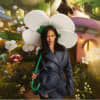Summing up a year listening to music is kind of like trying to talk about all the times you tied your shoelaces. Still, six editors at the FADER tried. Read what style editor Alex Frank had to say about 2011 here and 2012 below.
Rihanna is my woman of the year, for reasons good and bad. She was unavoidable in 2012 whether you liked her or not, like one of those banner ad skins that pop up momentarily on top of a web site. No matter where you looked, it seemed like an interruption of Rihanna’s face greeted you; news of her fluctuating hair length somehow magically became a part of your weekly experience. This is mostly okay—no one was more entertaining. I enjoyed seeing Rihanna’s daily outfits serialized like a comic strip, especially when she went walking in SoHo wearing nothing but a bra. But her entertaining aspects were also her bleakest. She was the cultural Id, the hedonist we all wished we could be ourselves. In between the Instagram photos that our friends took of their boring meals, Rihanna’d send through a picture of herself smoking weed on a private plane. She was the embodiment of the bacchanal, a reflection of everything we wished we could do but can’t since we have desk jobs and are not invited to the VMAs.
First, the good: nobody gives pop music the urgency that Rihanna does. Sure, there were many more expertly constructed pop albums in 2012 than Unapologetic, but there’s a quiver in her voice and an edge to her vibe that made “Diamonds” feel as serious as a Tennessee Williams play. No one can get into character quite like Rihanna can. On “Pour It Up,” a song produced by “Bands Make Her Dance” genius Mike Will, Rihanna ditches EDM for a minute and becomes essentially the best trap rapper on the planet. Two songs later, she’s sampling Ginuwine’s “Pony” in an absurd take on Skrillex. Her ability to flow seamlessly between aesthetic styles and make us believe her while she’s doing it is the reason why she’s had 12 #1 singles in six years. She is always “Rihanna,” a carefully managed industry production, but she also always feels like Rihanna, the person: real, instinctual, honest.
Rihanna's authenticity, her realness, her refusal to play to anyone else's rules felt like a constant encouragement for us to act the same, that we should give in to our baser instincts, to have a good time at all costs, to do whatever we want. Even as I sit at my computer, listening to her songs on headphones and trying to write something serious about her, she seems to be whispering in my ear that I should stop caring so much and focus on having a good time. I’ll always remember 2012 as the year of the party, nostalgically seen through a diamond prism of Rihanna’s aura. Maybe it was EDM’s final push into nearly every aspect of cultural life, a trend she herself helped foster with her last few #1s, but everyone here in New York seemed to be dancing to all hours every night of the week. It was the year of #FOMO, and nothing epitomized the odd urgency to have fun more than the lyrics of Unapologetic cut “Right Now,” which has become, in my mind, something of a theme song for her ethos: Tomorrow way too far away / we can’t get back yesterday / but we young right now / we’ve got right now / so get up right now / cuz all we got is right now. And, to sum up her philosophy even more succinctly: No, it can’t be wrong if it feels so right. That’s the hedonist’s calling card, even if feeling right isn’t the only thing in life that matters, and fittingly, so much of our social networking culture this year seemed to revolve around #FOMO—showing other people we were having more fun than they were, seeing cool things and cool people they weren’t. Every week in New York, there was some new celebrity at some new party that you missed being in the same room with. A friend sent me a message with the #FOMO hashtag after he saw me tweet from a party he wished he was at, and all I could say was that he shouldn’t worry, because there would be a million more parties. I wasn’t even having that much fun; my tweets just made him think I was.
The main narrative of Rihanna’s year was that she just didn’t give a fuck, a perception that went viral as people’s online discussions began to include exclamations of how crazy she was, how little she cared what anyone thought of her. As a marketing technique, it was extraordinarily effective. But what did it mean for the average folks who don’t ball, who don’t have stacks, who spend their days building something quite real and down to earth, who have to care because they have bills and alarm clocks ringing, who have to give a fuck? Rihanna is Siouxsie Sioux for the Verizon era, and when I saw her live on the final date of her disastrous 777 tour, the one in which she flew around in a jet with hundreds of journalists but never bothered to talk to any of them, she balled like a rapper, throwing a fur coat around, stomping about in cartoonishly oversized high heel booties and grabbing her crotch. The only thing she said to the audience was a thank you to HTC phones for sponsoring her as she tossed a free one into the audience, which, of course, was patronizing considering it made us all realize that we are unlike our idol—she'd never have to fight for a phone in a crowd; she has so many phones she's giving them away. She's not just like us, remember that, even if I can access her personal photos from my phone just as easily as those of my actual friends. I realized that “shine bright like a diamond” is great advice if you’re living in a cell phone commercial or performing in front of people at Webster Hall, but it means very little in reality. Sometimes she'd even forget to sing along to her songs, so impressed by herself that she just posed, and maybe that works for her, but most of us have to try at what we do. I’m much duller than a diamond—more like a dusty but charming pewter, and that’s ok. Some people notice me even if my luster isn’t so bright.
With the sobering realization of a new year around the corner, all the peer pressure and partying and not giving a fuck has started to feel exhausting, like staying out until the sun comes up and realizing that everybody else on the street is carrying a briefcase on their way to work and that the light of day is revealing that you look like shit. Sometimes I think that the Rihanna ethos reminds me a little too much of my high school days, when weekends were paramount and people cared who the popular ones were. Nothing made me feel more like I was back in the cafeteria than the constant gossipy debate about Rihanna’s relationship with Chris Brown this year, an argument that was really none of our business but sort of became our business since her record label seemed to use the domestic abuse case to drum up gossipy interest in Unapologetic. She even recorded a song with him called “Nobody’s Business,” an ode to not giving a fuck what anybody else thinks of her.
In many ways, I understand her defiance—all the blog muck and Twitter feuds about her and Brown were infuriating, and considering that their relationship became one of the crowning controversies of a year full of outrages on all sides of the political spectrum, I’m sure it takes courage for Rihanna to open a computer at this point. The internet was like a gladiator arena in 2012, a cavernous and infinite space for battles to be waged. Feminists like Sandra Fluke were cyberbullied by conservative radio hosts, and many credible culture writers spent way too many of their working hours debating whether or not Lena Dunham was a white supremacist. Gay marriage passed in a few states, but gay teenagers committed suicide because they were overwhelmed by the mean names other kids were calling them. An old woman got harassed on a bus by middle schoolers and then the internet raised tens of thousands of dollars for her, in a gesture that was beautiful but also completely missed the point. There was so much mudslinging and then so many apologies, so much racism, homophobia, sexism, so much backtracking, so many uses of the words “outrage” and “shocking” and “scandal.” But none of it was illuminating or even entertaining—it felt like everybody was screaming into a brick wall. After Billboard called her a bad role model for staying with Brown, her response was both characteristically defiant and mind-numbingly vacant of responsibility: “Go head talk shit…its all in da paper!!! Lemme grab my dick while ya sit on top!!!” Though it’s become an empowerment trope to say you don’t care what haters have to say, chalking up every crack in the armor to a reason for giving the middle finger to the haters is starting to feel like the easy way out, just more hyperbole and screaming that we don’t need and just another way to not put in the effort that life actually requires.
Every culture gets the pop star it deserves, and there must be something in the water that made us need an icon this year that would help us drink so much we’d forget our Saturday nights, a pop star’s who’s most identifiable characteristic was how little she cared what anyone thought of her. But what does it mean to not care? More importantly, what does it mean to WANT to not care, as though not caring were a challenge, when it’s naturally the easier road. I remember a very recent cultural moment when I truly believed that self-made pop divas like Beyonce and Nicki Minaj would save us from mediocrity and misogyny by sheer willpower and hard work and strength of character. That doesn’t seem that long ago, but it’s so different from what we wanted in 2012. Perhaps we needed a break. Or maybe Rihanna’s right, and I shouldn’t take culture so seriously that I write 1,500 words about a year in music when there’s much funner things to do. But a call to not care feels like the blind leading the blind, and maybe that means we’ve all just gone in circles in 2012. No matter what a pop star says, I’m hoping to grow up and give a shit in 2013. Actually, unlike Rihanna, I don’t really have a choice.
- - -
Read more:
Matthew Schnipper on accessible rock and romantic comedies.
Amber Bravo on female musicians, emphasis on the musicians.
Emilie Friedlander on falling in love, again.
Naomi Zeicher In defense of falling apart in public.
Duncan Cooper on Taylor Swift, Lil B and loving Kyary Pamyu Pamyu.


